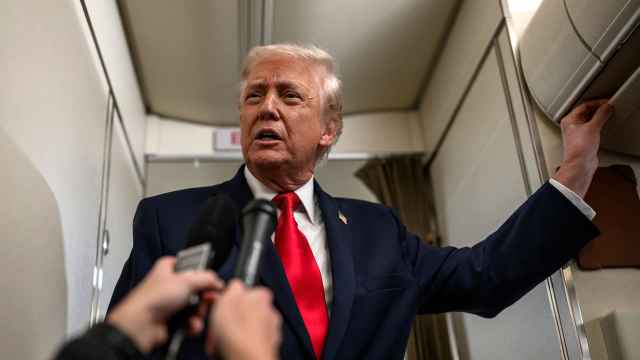State purchasing reform is being delayed again because of interagency conflict. Now the government will try to make a proposal by Nov. 1, but the reform is unlikely to be implemented before the presidential election.
The government was supposed to present to President Dmitry Medvedev on Thursday a proposal for reforming the state purchasing system, including the creation of the Federal Contracts System.
But, according to two officials who spoke to Vedomosti, the Economic Development Ministry asked for a deadline extension until Nov. 1. A government source said the Kremlin agreed to extend the due date because of the seriousness of the disagreement.
Medvedev initiated the reform last autumn, making proposals due by April 1 for the Federal Contracts System, meant to combine planning, implementing and supervising state purchases. Only the implementation of state orders is subject to legislative control now.
The government was unable to agree on a proposal by the first deadline. The Economic Development Ministry wanted to replace current legislation with a new law on the Federal Contracts System, while the Federal Anti-Monopoly Service and Finance Ministry wanted to revise the current law and draft a new law on the contracts system. Control over the contracts system was also a hot issue. State purchasing is now under the control of the Finance Ministry, but the Economic Development Ministry created a state order department in April.
There are also differences of opinion about how to place the state order. The economy ministry wants to free officials' hands by reinstituting pre-qualification and adding a two-stage closed competition and even competitive negotiations. Those changes are proposed only for the largest orders, such as for construction and medicines. The anti-monopoly service is willing only to relax requirements for scientific orders.
Experts are as divided as politicians over the issue, said Ilya Sokolov, co-chairman of the Federal Contracts System group in the Strategy 2020 project. The main issue is how much freedom to allow officials, he said noting that Russia has a very high rate of competitive purchasing (55 percent) compared with developed countries and a bureaucracy of a different quality.
A Message from The Moscow Times:
Dear readers,
We are facing unprecedented challenges. Russia's Prosecutor General's Office has designated The Moscow Times as an "undesirable" organization, criminalizing our work and putting our staff at risk of prosecution. This follows our earlier unjust labeling as a "foreign agent."
These actions are direct attempts to silence independent journalism in Russia. The authorities claim our work "discredits the decisions of the Russian leadership." We see things differently: we strive to provide accurate, unbiased reporting on Russia.
We, the journalists of The Moscow Times, refuse to be silenced. But to continue our work, we need your help.
Your support, no matter how small, makes a world of difference. If you can, please support us monthly starting from just $2. It's quick to set up, and every contribution makes a significant impact.
By supporting The Moscow Times, you're defending open, independent journalism in the face of repression. Thank you for standing with us.
Remind me later.





